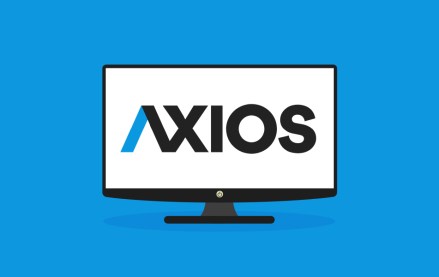How ITV is pushing into addressable TV advertising
Commercial broadcaster ITV has been building out its addressable TV offering, but it’s been a slow burn on linear TV partly due to finding the right tech partner.
Currently, the broadcaster offers targeted ads on its on-demand and catch-up service, ITV Hub, which has 27 million subscribers. ITV announced last November it was working with an ad tech firm to help it serve ads relevant to viewers’ interests, demographics and lifestyles through connected TVs but has since cut ties with them.
“There isn’t the tech out there we’re comfortable in using for addressable in a linear environment,” said Simon Daglish, group commercial director at ITV at the New Video Frontiers conference in London this week.
ITV is aware it needs the technology to build out its linear addressable TV solutions, either through acquisition — it lost out to Singtel in the bid for Videology — or partnering with others. It’s also working with other commercial broadcasters, such as Channel 4 and Channel 5, on addressable TV products and ways to share data that will strengthen its position against Facebook and Google, although Daglish couldn’t share details.
Through ITV Hub, the broadcaster can offer regionalized targeted ads, although the analytics have been kept within its own walled garden, a bone of contention for buyers. Hub is a “major source” of revenue, said Daglish, and it’s continuing to grow 54 percent this year. According to investment analysts, Liberum, ITV’s targeted ads now make up more than 50 percent of ITV’s online video-on-demand offering.
“That is a significant move in our direction and significant move in our targeting of Google and Facebook and taking them on at their own game,” said Daglish. “The difference between Facebook’s highly targeted ads and TV is that we have great content. We see Facebook and Google as they see us; we’re going to go after their revenue.”
Liberum also estimates that due to ITV’s diversification efforts into VOD, content and what ITV calls direct to consumer (events, products and licensing), will generate nearly 45 percent of its future earnings growth. Previously, Daglish said 80 percent of ITV’s revenue came from advertising, it plans to get this down to half in the next 18 months.
Jonathan Wait, head of product at Dentsu Aegis agency Amplify said ITV’s addressable progress has been slow, with little movement in the last year, and it largely trades on a direct basis with ITV Hub as its programmatic offering is not yet attractive enough.
“The issue with most broadcaster programmatic VOD offering is that the benefit doesn’t outweigh the cost; the CPMs are the same as buying direct,” he said. “The added DSP and tech fees on both sides make it more expensive for advertisers, so it doesn’t make a lot of sense right now.”
Waite said the tech fees add on between 5 and 10 percent to the CPM, which range between £25 ($32) and £30 ($38.94) depending on the supplier and level of targeting. Another layer of data, either first-party broadcaster data or linking with agency IDs, will justify this cost.
“From a planning and buying point of view, there’s a disconnect from what you’re doing; buying programmatically ties into the rest of your digital activity,” he said. “You can frequency control and cap across suppliers, report back on attribution. The more done outside the ecosystem, the harder it is to do, while clients are asking for more efficiency.”
Subscribe to the Digiday Video Briefing: A weekly email with news, quotes and stats around the modernization of video, TV and entertainment.
More in Future of TV

Future of TV Briefing: Media Rating Council identifies ‘the problem of our time’ for measurement
This week’s Future of TV Briefing looks at how the industry’s measurement arbiter is looking at ensuring measurement systems are able to reliably identify audiences across channels in a privacy-compliant manner.

Future of TV Briefing: Making sense of the TV industry’s latest measurement moves
This week’s Future of TV Briefing looks at the recent developments in the TV measurement market on the eve of this year’s upfront negotiations.

Future of TV Briefing: How Axios Entertainment is looking to expand its original programming business
This week’s Future of TV Briefing looks at how Axios’s entertainment division has its eyes on moving physical production in-house and getting into scripted programming.








